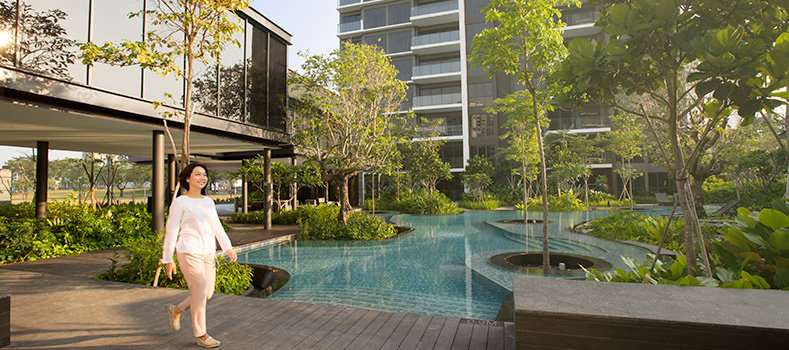
Transforming construction methods
Bouygues’ construction businesses are decarbonising their business models in order to achieve their carbon emissions reduction targets. To this end, they are completely transforming their processes along their entire value chain, and rolling out circular economy strategies in order to secure their supplies while protecting the environment at the same time.
The Group’s construction businesses are implementing solutions centred around four priorities:
- Selecting sustainable and recyclable materials in the design phase
- Reducing the amount of resources used during construction
- Recovering and re-using materials on-site
- Recycling materials
The Hôtel des Postes building, Strasbourg (Bouygues immobilier)
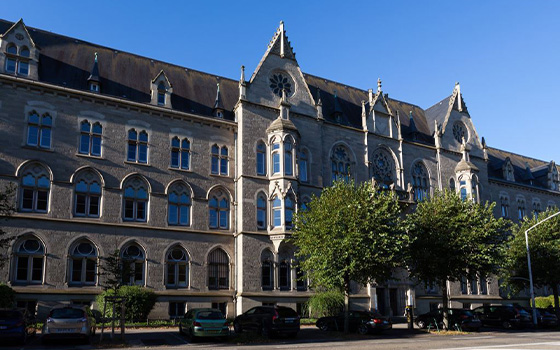
In renovation projects, identifying materials that can be recycled is a painstaking process. At Hôtel des Postes, Strasbourg’s former central post office, Bouygues Immobilier re-used structural components, internal doors, external joinery and various other parts of the building, and employed innovative ideas such as repurposing the old carpet as insulation. As a result, the renovation project avoided nearly 7,100 tonnes of CO2 emissions.
85% of materials recovered, recycled and re-used in Suresnes, near Paris (Bouygues Construction)
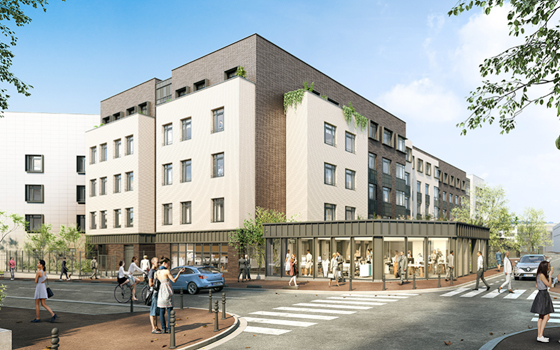
Habitat Social, a subsidiary of Bouygues Bâtiment Île-de-France, is converting the former corporate headquarters of an aerospace company into student accommodation. The renovation project, known as “ELOAS”, stands out for its environmental focus with, for instance, 85% of materials recovered, recycled and re-used on- and off-site.
> Find out more
Use of low-carbon concrete for the Conservatoire and Piscine Leclerc in Pantin, near Paris (Bouygues Construction)
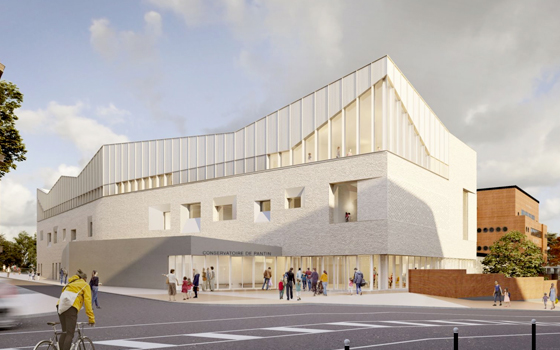
Bouygues Bâtiment Île-de-France is committed to reducing the carbon footprint of the concrete it uses across many of its developments. One example is a project to renovate the Piscine Leclerc swimming pool in Pantin, near Paris, and to add a new music school to the same facility. Here, a low-carbon concrete from Hoffmann Green Cement Technologies was used for the raised floor on the second storey of the music school, and for the floor of the swimming pool. It was the first time this material had been used to create a floor.
> Find out more
Investment in green hydrogen specialist PowiDian (Bouygues Construction)
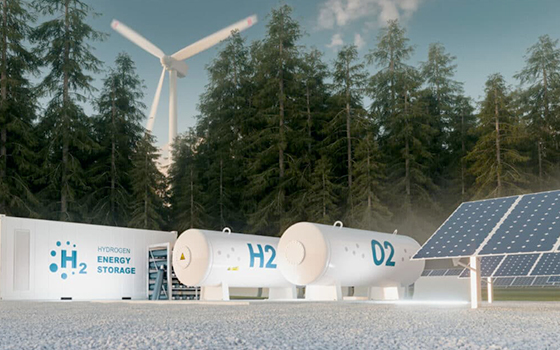
In 2020, Bouygues Energies & Services signed an agreement to invest in PowiDian, a start-up that develops green hydrogen solutions to provide a 100% renewable, off-grid energy supply to remote locations.
> Find out more
Ecomac cold asphalt mix (Colas)
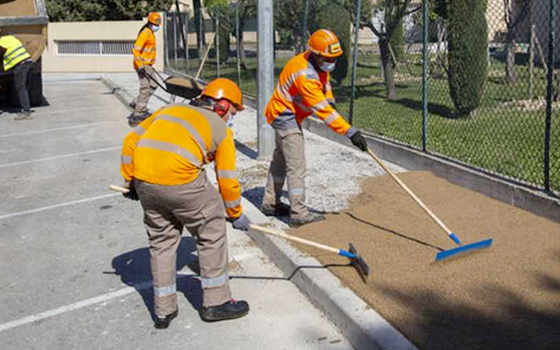
Ecomac is bituminous concrete manufactured by warming a cold mix. The process aligns with sustainable development principles because it generates no dust or fumes and keeps volatile organic compound (VOC) emissions to a minimum.
> Find out more
Qievo – optimising traffic flows around construction sites (Colas)
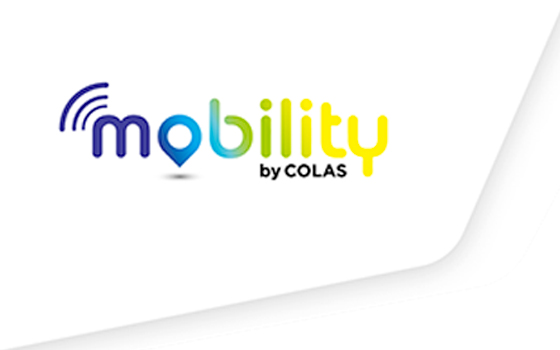
Mobility by Colas has developed Qievo in order to optimise traffic flows around construction sites. The tool uses geographical engineering analysis to develop digital and technological traffic management solutions. Qievo is a centralised system for managing logistics and accurately monitoring indicators that, in due course, enables the development of a customised solution for each worksite.
> Find out more
MeDIA

TF1’s media sales arm is helping socially and environmentally responsible brands and businesses looking to promote their products and initiatives. It is developing bespoke advertising packages and drawing on a strong sense of commitment to CSR challenges across its media ecosystem.
Elsewhere, TF1’s set designers apply eco-design principles and recycle existing set components.
TeleCOMS

Bouygues Telecom is boosting its leadership position in the smartphone circular economy by rolling out a 4R strategy (repair, recover, refurbish, recycle) for pre-owned handsets.
The Global Circular Economy Chair
In December 2021, ESSEC Business School, L’Oréal, EssilorLuxottica and Bouygues jointly launched the first international chair devoted to the circular economy, the ‘Global Circular Economy Chair’, dedicated to students of ESSEC’s Master in Management program.
Olivier Roussat, CEO of the Bouygues Group, said: “We are proud to partner with a leading academic institution such as ESSEC Business School to work on the important topic of the circular economy, which is a source of environmental and economic benefits and a key lever for reducing our greenhouse gas emissions.”